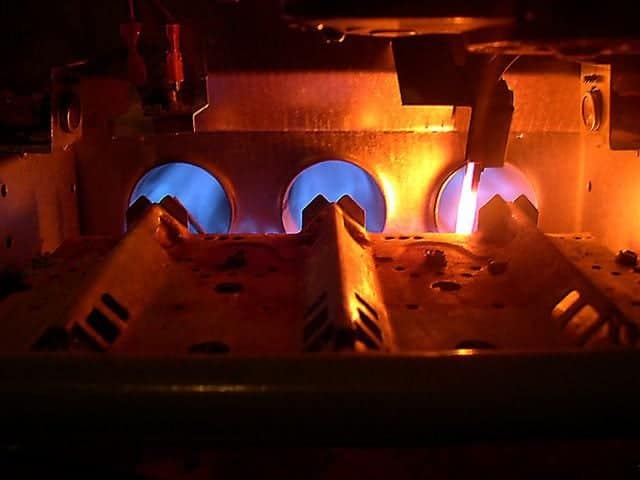As temperatures slowly drop in the Tampa area, some homeowners are getting prepared to make the switch from cooling to heating. But if you’re firing up your furnace or heat pump for the first time this year, you’re bound to come across some weird problems. To be of assistance, we’ve outlined the most common problems you’ll face and what you should do in each situation.

Transitioning from AC to Heating? 4 Problems You May Encounter
Problem 1: A burning smell
If you notice a burning smell the first time you switch on the heat, don’t worry. That’s normal. It’s simply your unit getting rid of all the dust and dirt that’s sitting on your unit. Even if you change your air filter religiously, you’re going to get some amount of dust on your heating unit. And this also applies for all those heating units (heat pumps, boilers, furnaces, heat strips, etc.).
What should I do?
Nothing. This is normal and will go away following the first couple of times you utilize your heat.
However, if the smell doesn’t disappear eventually, have a professional examine as that could be a indication of a more significant issue.
Problem 2: Dirty sock smell
This is a common problem for heat pumps, particularly in Florida. It’s so common, actually, that it’s been dubbed the “Dirty Sock Syndrome”.
Mold and bacteria growing on the outdoor coils of a heat pump.
Source
That mildewy, locker room stench occurs when you get mold, fungus and/or other bacteria on the heat pump refrigerant coils. The high humidity in Florida allows for the perfect conditions for bacteria/mold growth. And if your coils are dirty, it won’t be long until that smell is pushed into the home, affecting your quality of air.
What should I do?
Have a professional HVAC tech take a look at your system to ensure that your coils have bacteria growth. Should this be the situation, the tech will either clean the coils or suggest replacing them.
Problem 3: Unit blowing cold air
When your heating unit is blowing cold air, it may be caused by a variety of things. Of course, it’s impossible to identify the problem without knowing what kind of heating system you may have.
What should I do?
First off, for those who have a heat pump, try this: Look at your thermostat for the current temperature of the room. Wait 30 minutes then check it again.
Is the temperature rising? If that’s the case, your air may not really be as cold as you think it is. The thing is that, heat pumps deliver air that’s usually anywhere from 85 to 95 degrees Fahrenheit. But because your body temperature is relatively higher (98 degrees), the air may feel “cold” to you.
If you have a furnace or a heat pump, check for these 2 things:
A clogged filter
Fan is set to ON instead of AUTO
If you’ve checked the aforementioned but still aren’t sure why you aren’t getting hot air, have a professional inspect your system.
Problem 4: Unit keeps tripping the circuit breaker
It is usually frustrating to turn on your heat, expecting some sweet relief from the cold weather, simply to have the heat immediately shut off as a result of tripped breaker.
So, what’s happening?
Well, the main 3 reasons this could be happening include:
An overloaded circuit (perhaps due to the system overheating)
A short somewhere in the wires
A bad circuit breaker
A ground fault somewhere in the electrical wiring
What should I do?
Because this is an electrical issue, there are few things that you can check and fix safely yourself.
But, it is possible to troubleshoot the overheating issue with these steps:
1. Check out the air filter and change it if it’s covered in a layer of dust/dirt.
2. Check the outside compressor (if you have a heat pump) and make sure there are no branches, dirt or leaves, etc. suffocating the system.
3. Locate your heating unit’s circuit breaker (it should be the only one in the OFF position)
4. Push the breaker firmly to the ON position
5. Should the breaker stays in the ON position, your heat should come back on. If your breaker immediately flips back to the OFF position, don’t try to flip it again. Have a professional inspect and repair the system.
We always have our system serviced in the Fall and Spring as a precaution, we work with several companies here in the Tampa Bay area that we would recommend. If you need a referral, simply click here and we will provide you a list of the vendors we recommend.

